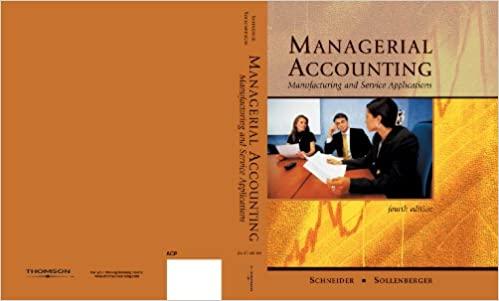Question
1. Which of the following elements from the fraud triangle drives a person to want to commit fraud? A. Motive B. Rationalization C. Authority D.
1. Which of the following elements from the fraud triangle drives a person to want to commit fraud? A. Motive B. Rationalization C. Authority D. Opportunity
2. Which of the following is a factor that influences the level of fraud risk faced by an organization based on the type of business or industry in which it operates? A. The operating environment B. The effectiveness of its internal controls C. The ethics and values of the people and the company D. The nature of the business
3. What is the objective of a fraud risk assessment? A. To provide an estimate of an organizations fraud losses B. To establish the guilt or innocence of an employee suspected of committing fraud C. To help an organization identify what makes it most vulnerable to fraud D. To assess the design and effectiveness of an organizations internal controls over financial reporting
4. Which of the following is a responsibility of the board of directors or audit committee as it relates to the fraud risk management process? A. Effectively implement anti-fraud controls. B. Oversee the fraud risk assessment process. C. Set the appropriate tone at the top. D. Assist in the design and implementation of anti-fraud controls.
5. Which of the following is a key element to conducting an effective fraud risk assessment? A. Having at least surface-level knowledge of business operations B. Selecting a sponsor who is open and willing to hear the truth about the companys fraud vulnerabilities C. Being subjective when evaluating the fraud risks facing the company D. Obtaining access to only high-level staff within the organization
6. Gray is an internal auditor and the lead on the companys fraud risk assessment. In the past, he and Blue, an accounts receivable clerk, have had several heated disagreements over accounting procedures. During the fraud risk assessment, Gray should: A. Include his disagreements with Blue as a factor when assessing the risk of fraud in the accounts receivable department. B. Have someone else perform the fraud risk assessment work related to the accounts receivable departments activities. C. Confront Blue about the disagreements and discuss how they increase the departments risk of fraud. D. Automatically designate the accounts receivable department as a high-risk area.
7. Which of the following might be considered a good characteristic for a fraud risk assessment team? A. The team should always consist of four individuals. B. The team should consist of individuals with the same knowledge, skills, and perspectives. C. The team members should have experience in gathering and eliciting information. D. The team members should only include internal resources.
8. ___________ enable the fraud risk assessor to observe the interactions of employees as they discuss a question or issue. A. Interviews B. Surveys C. Focus groups D. Anonymous feedback mechanisms
9. Which of the following is an example of a common external fraud scheme? A. An employee steals a check from their employer and cashes it at a local bank. B. A competitor steals an organizations trade secrets. C. An employee makes fraudulent journal entries to increase revenue. D. An employee submits fraudulent expenses along with legitimate expenses.
10. The aiding and abetting of fraud by outside parties, such as customers and vendors, is considered a fraud risk pertaining to which category of fraud? A. Fraudulent financial reporting B. Asset misappropriation C. Corruption D. Improper disclosure
11. Which of the following is an example of a preventive control? A. Performing background checks on employees B. Establishing a whistleblower hotline C. Implementing continuous auditing techniques D. Implementing proactive controls for fraud detection
12. The ___________ is an assessment of how the organization and its people behave or are perceived to behave. A. Environmental risk index B. Culture quotient C. Prevent/detect index D. Leadership risk profile
13. In response to a risk identified during a fraud risk assessment, management decides to exit a business activity because the control measures required to protect the organization against the identified threat are too expensive. This response is known as: A. Avoiding the risk B. Transferring the risk C. Mitigating the risk D. Assuming the risk
14. In response to a risk identified during a fraud risk assessment, management decides to implement countermeasures, such as prevention and detection controls. This response is known as: A. Avoiding the risk B. Transferring the risk C. Mitigating the risk D. Assuming the risk
15. To maximize the effectiveness of the fraud risk assessment process, which of the following should be considered when reporting results: A. The risk assessment team should report subjective results. B. Details related to each facet of the risk assessment process should be reported. C. Several methods of reporting should be used so that results resonate with management. D. The report should contain recommendations that are clear and measurable.
Step by Step Solution
There are 3 Steps involved in it
Step: 1

Get Instant Access to Expert-Tailored Solutions
See step-by-step solutions with expert insights and AI powered tools for academic success
Step: 2

Step: 3

Ace Your Homework with AI
Get the answers you need in no time with our AI-driven, step-by-step assistance
Get Started


